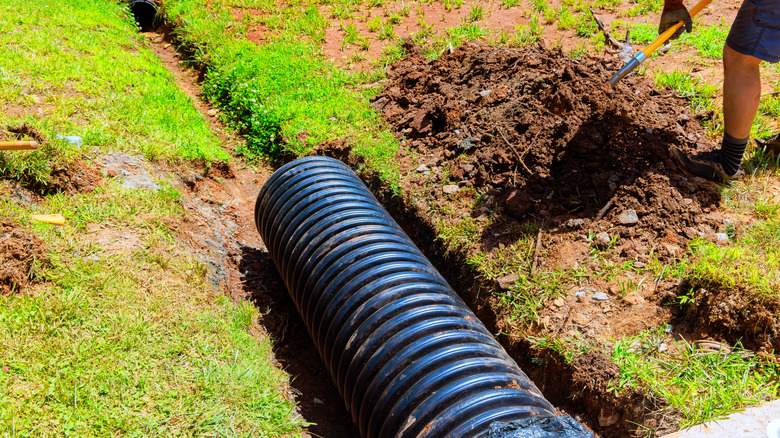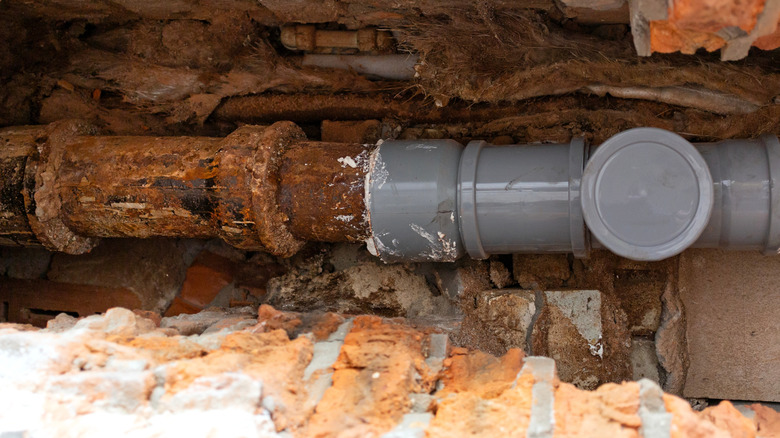Sewer Line Need Repairs? Here's How Much That'll Cost You
Few things make a homeowner panic faster than realizing the main sewer line leading away from their home needs repairs. You know the repair is absolutely necessary, but the thought of digging up your yard is always accompanied by one major worry: the bill. Just how much are we talking about? The average cost for replacing a sewer line ranges from $50 to $250 per square foot of work completed. The total amount depends on the specific kind of repair needed for your home's system.
The sewer line is an important part of your home. It moves wastewater from your house to the public street connection. A break here is more serious than a clog, since it can lead to sewage backup in your basement, water damage, and even foundation problems. When sewer line problems happen, you need to act quickly. The overall cost ultimately depends on the type of repair and the unique details of your property and plumbing system.
As one of the most common surprise repairs, the overall average cost for a full sewer line replacement is typically about $3,320. For minor fixes, it can be around $1,390, and if you need extensive work done, the cost can go up to $5,320. Considering the wide range of pricing, it's recommended to call a professional to come and take a look and see exactly what's needed.
Homeowners can choose between trenchless and traditional sewer line replacement methods
The method used to fix your pipes will affect the final price and how much digging is done on your property. If the sewer line in your yard has been damaged, there are two options for repair. Traditional excavation, sometimes called open-top excavation, requires crews to dig a large trench along the entire stretch of the sewer line that needs service. This option typically costs approximately $50 to $250 per square foot. Additional costs add up when you consider excavation, removal of the old pipe, and the restoration of the property, which can include repairing driveways, walkways, or any structures that need to be broken up or moved when accessing the damaged sewer line.
A trenchless approach, which runs from $60 to $250 per square foot, can be the overall less expensive option due to the fact that a crew wouldn't have to dig up the property. The final bill typically shows that the trenchless method is more budget-friendly because you don't have to tear up a patio, driveway, or garden and then pay to replace them. There are two types of trenchless repair. The first is pipe lining, or cured-in-place pipe. This involves inserting an epoxy-saturated tube into the old pipe and curing it to create a new pipe inside the existing one. The second type is pipe bursting. This uses a specialized tool to destroy the old pipe while simultaneously pulling a new pipe into its place. These methods only need one or two small access areas, which saves time and money. Trenchless options might not work if the pipe has collapsed or has other significant damage.
What factors influence the overall sewer line repair cost?
Aside from the replacement method, there are a few other factors that influence the overall cost of the project. The length and depth of the line are some of the most important. Repairing longer pipes means more expensive material costs, which typically average around $150 per linear foot, including labor. Lines buried deeper underground, especially those in colder climates, need more labor and time to reach, driving up the price. The material of the new pipe also matters. Less expensive options like PVC pipe costs from $3 to $8 per linear foot, while more durable materials like cast iron can run from $20 to $75 per linear foot, and copper can cost as much as $30 to $80 per linear foot.
Where the pipe is located on your property is also important, especially if you're trying to figure out what your waterlogged lawn is trying to tell you about your plumbing problems. Accessing pipes underneath concrete slabs, such as driveways or basement floors, can add hundreds of dollars per linear foot to that section of the repair since the concrete would need to be broken up and replaced. Other additional services that can drive up the cost of repairs also include a camera inspection before any work actually begins. Most projects need this inspection to actually see what's wrong. This can cost between $300 and $400. Local permit fees, which are required for municipal approval, can cost anywhere from $100 to $1,000, which adds to the overall cost of the project.


